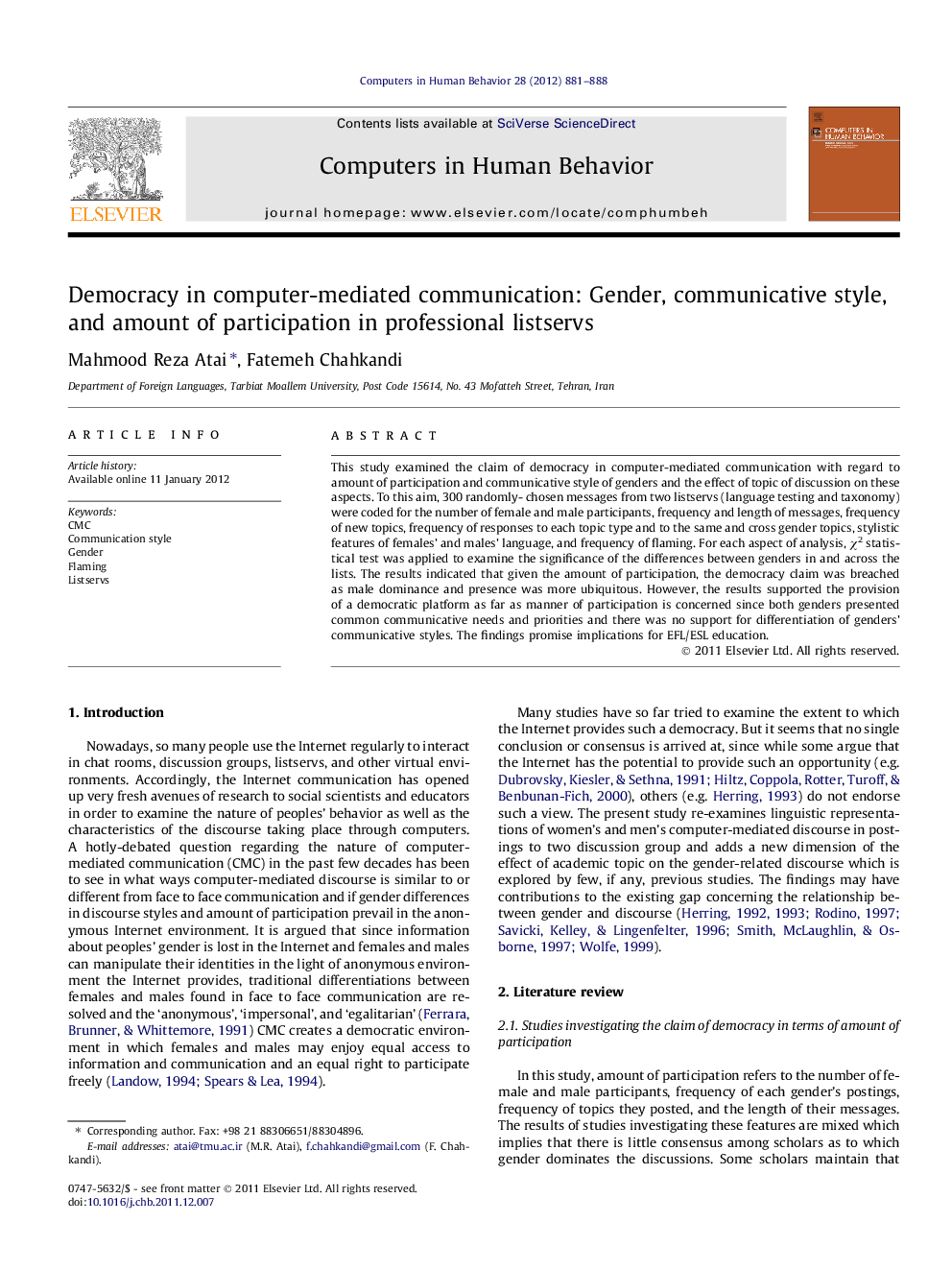| Article ID | Journal | Published Year | Pages | File Type |
|---|---|---|---|---|
| 351343 | Computers in Human Behavior | 2012 | 8 Pages |
This study examined the claim of democracy in computer-mediated communication with regard to amount of participation and communicative style of genders and the effect of topic of discussion on these aspects. To this aim, 300 randomly- chosen messages from two listservs (language testing and taxonomy) were coded for the number of female and male participants, frequency and length of messages, frequency of new topics, frequency of responses to each topic type and to the same and cross gender topics, stylistic features of females’ and males’ language, and frequency of flaming. For each aspect of analysis, χ2 statistical test was applied to examine the significance of the differences between genders in and across the lists. The results indicated that given the amount of participation, the democracy claim was breached as male dominance and presence was more ubiquitous. However, the results supported the provision of a democratic platform as far as manner of participation is concerned since both genders presented common communicative needs and priorities and there was no support for differentiation of genders’ communicative styles. The findings promise implications for EFL/ESL education.
► We examined computer-mediated communication in two listservs: taxonomy and language testing. ► Male participants posted and received more messages and posted longer messages than females. ► Both genders had common priorities for topics they posted but different priorities for responding. ► No significant difference was found for the stylistic features between genders. ► Males showed greater tendency towards mixed style while females used their own style.
